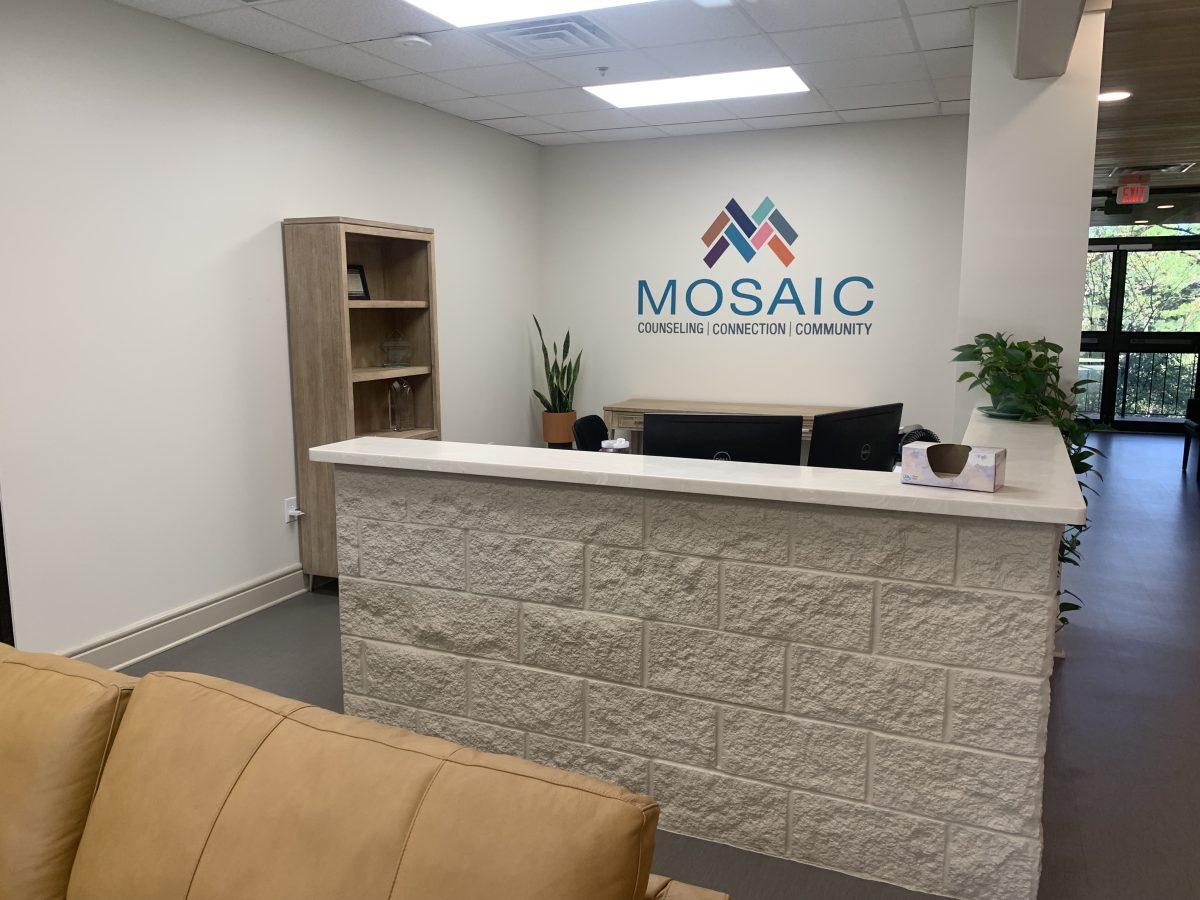
Photo courtesy of Mosaic Counseling Center.
College students often face unique challenges; academic pressures, social environments, and personal transitions that challenge students mentally. Whether it is anxiety, depression, or the mental strain resulting from troubled relationships, students can access support. Mosaic Counseling and the East Texas Crisis Center provide various services to assist students facing these issues at a low cost. From systemic treatments to specific support services for victims of domestic violence, the centers make sure mental health care is accessible.
One of the problems college students face when seeking therapy is the cost. As their expenses like tuition, rent, and car insurance often take priority, their mental health falls to the bottom of the list. This doesn’t have to be the case as college students have local access to mental health resources without paying an excessive amount of money. At Mosaic Counseling in Tyler, college students are offered budget-friendly therapy to ensure their well-being is prioritized at a price they can manage.
Brittany Gayetski, a Licensed Clinical Social Work supervisor at Mosaic Counseling, said “We pride ourselves on making that affordable and accessible to people. We accept a number of different insurances, and we also have financial assistance available for folks who qualify.”
Another barrier college students face when attempting to seek therapy is selecting the right service for their specific needs. Students are often overwhelmed by a mixture of emotions and do not know what they want from therapy or whether a therapist will understand them or be a good fit. At Mosaic Counseling, students don’t have to face this obstacle as their website allows them to explore the types of care available at their center, and if they ever feel their therapist isn’t the right fit, they can smoothly transfer to someone who better aligns with their needs.
“We have a variety of like video resources that can sometimes give people a little introduction into particular therapeutics and get a sense of particular types of care would be good for them,” Gayetski said. “I usually encourage people to give it about three sessions to see if they (them and their therapist) are a good start team after one another, depending upon how they’re inclined to work in that space and what they’re hoping to get out of therapy.”
While college students primarily face anxiety and depression, some experience deeper trauma from their romantic relationships, friendships or domestic situations. With all of the layers of challenges involved, finding the right counseling center, staying within the budget, and offering specific services, it can make it even harder to find a place where students feel safe to share such personal experiences and truly confide in getting the help they need. At the East Texas Crisis Center, they make confidentiality a top priority, taking extensive measures to ensure that all patient information remains secure and private to provide a safe space for those who need it most.
“We take confidentiality very seriously. We have gates and security here, just the nature of what we do and the population we serve. It’s very physically safe, and we also ensure that everything is extremely confidential,” said Samantha Kauffman, clinical services coordinator at the East Texas Crisis Center.
 Photo courtesy of Mosaic Counseling Center. Students can contact the center at 903-593-9141 or visit 6141 Paluxy Dr. to seek care.
Photo courtesy of Mosaic Counseling Center. Students can contact the center at 903-593-9141 or visit 6141 Paluxy Dr. to seek care.
Both Mosaic Counseling and the East Texas Crisis Center are dedicated to providing accessible, low-cost mental health services to college students while offering continuous support for their well-being through their education.
These centers not only treat common mental health challenges like anxiety or depression, but also give further support to students who have experienced complicated trauma. They provide an environment for students to find help affordably, with care options built around students’ needs and a guarantee of confidentiality.
To seek therapy at Mosaic Counseling:
• Students can visit the center, located at 6141 Paluxy Dr., call 903-593-9141, or email [email protected] to seek care for themselves or their loved ones.
To seek therapy at The East Texas Crisis Center:
• Students can call a 24/7 hotline number at 903-590-5591 if they need resources, someone to talk to about their situation, or if they’re interested in the emergency shelter. The East Texas Crisis Center is located at 2401 Hughey Dr.